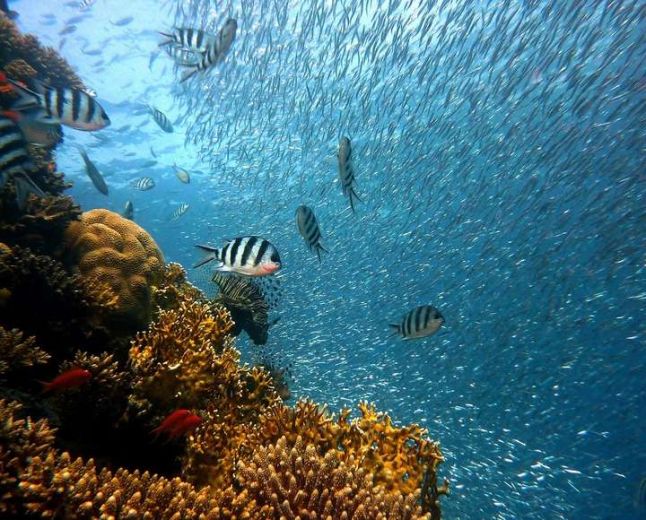The sound of an ecosystem coming back to life

Sponsored by

A recent study led by researchers from the School of Biological Sciences at University of Bristol and the University of Exeter has found that the soundscapes of restored coral reefs demonstrate the success of a coral reef restoration project.
The researchers grew thousands of square metres of coral on previously destroyed reefs in Indonesia and were uncertain whether the new corals would revive the entire reef ecosystem. However, the study found a healthy and diverse soundscape on the restored reefs, including sounds that have never been recorded before, including whoops, croaks, growls, raspberries and foghorns. These unusual sounds can be used alongside visual observations to monitor vital ecosystems.
By listening to the reefs, the team have documented the return of a diverse range of animals, providing exciting evidence that restoration is effective not just for coral but for other reef creatures too.
The study used acoustic recordings taken as part of the monitoring program for the Mars Coral Reef Restoration Project. The results are positive for the project's approach, in which hexagonal metal frames called ‘Reef Stars’ are seeded with coral and laid over a large area. The Reef Stars stabilize loose rubble and kickstart rapid coral growth, leading to the revival of the wider ecosystem.
The soundscapes of the restored reefs are not identical to those of existing healthy reefs - but the diversity of sounds is similar, suggesting a healthy and functioning ecosystem. The study found significantly more fish sounds recorded on both healthy and restored reefs than on degraded reefs.
The return of the soundscapes provides hope for the future of these delicate ecosystems. The sounds attract more animals that maintain and diversify reef populationsTop of Form, meaning a reef has a far higher chance of becoming self-sustaining.
Research in Bristol’s School of Biological Sciences spans the full range of biological disciplines, from genomics and cell biology, through diverse aspects of whole organism biology and evolution, to population biology and ecosystem services. Find out about our research, courses and the latest research news.